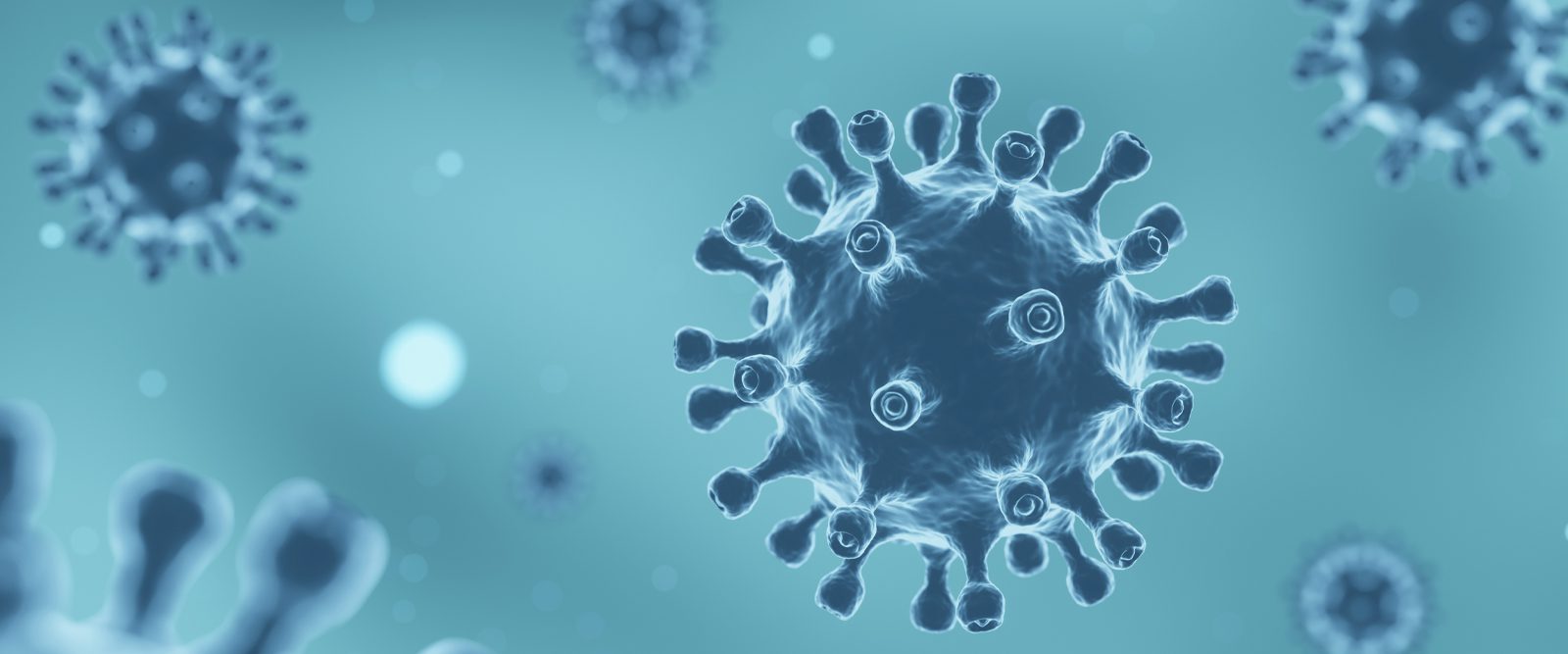COVID Cases on the Rise: What to Know About the FLiRT Variants
Infectious disease experts share how to stay safe amid a summer wave of COVID cases and information on updated vaccines coming this fall.

This summer, COVID cases have been rising in 39 states across the United States, the Centers for Disease Control and Prevention (CDC) recently said. KP.2 and KP.3, known as the FLiRT variants, are accounting for almost half of infections.
“As is often the case, new variant strains are driving a rise in COVID cases,” says Dr. Yoko Furuya, chief epidemiologist and medical director of Infection Prevention and Control for NewYork-Presbyterian Hospital. “Over the past few months, the FLiRT variants have led to an increase, and now there is another variant known as LB.1 that is spreading quickly as well.”
The FLiRT and LB.1 variants are subvariants of Omicron, specifically descendants of an Omicron strain known as JN.1, explains Dr. Furuya. “As of July 6, the CDC estimates that 37% of cases are being caused by KP.3, followed by 24% by KP.2,” she says. “The rapidly rising LB.1 is causing 15% of cases.” The CDC also reported that there has been an 18% increase in emergency department visits, and around a 13% uptick in hospitalizations due to COVID.
Based on these recently circulating strains, vaccine manufacturers are working on an updated formulation of the COVID vaccine, says Dr. Magdalena Sobieszczyk, chief of the Division of Infectious Diseases at NewYork-Presbyterian/Columbia University Irving Medical Center. “As of June 13, the Food and Drug Administration (FDA) issued new guidance to vaccine manufacturers advising them to base the new formulation on the KP.2 strain, if feasible,” adds Dr. Sobieszczyk. When the vaccines become available, which will be during the fall, the CDC recommended people six months and older to get the updated shots.
Health Matters spoke with Dr. Furuya and Dr. Sobieszczyk about the rise in cases this summer, new variants, and the updated vaccines.

Dr. E. Yoko Furuya
Are the FLiRT and LB.1 variants more contagious? Are they more dangerous?
Dr. Furuya: The currently circulating variants are quite transmissible, but it is not entirely clear yet whether they are more contagious than other recent variants. They seem to be better at evading immunity from vaccination or from prior infections, which means that ultimately, they can spread more easily because our immune systems may be less protective if we come into contact with these variants. There is nothing so far to indicate that these new variants are more dangerous than other Omicron strains.
What are the symptoms that people are reporting?
Dr. Furuya: The symptoms are similar to those seen with other COVID strains, including fever, sore throat, cough, runny nose, headache, and muscle aches; gastrointestinal symptoms, like nausea and diarrhea, are also possible. Some people, especially older people or those with weakened immune systems, are still at risk of getting more severe symptoms, including breathing problems that require hospitalization.
How can people test for COVID?
Dr. Furuya: Available tests are antigen ones, like at-home COVID tests, as well as PCR tests. PCR tests are considered the gold standard test. Samples are usually taken by health care providers and are sent to a laboratory for testing. It can take around three days to receive results.
Antigen tests have the advantage of being quick and widely available, and they can be self-administered at home. The main disadvantage is that false negative results can occur, especially early in the course of infection. If you start having symptoms of COVID and an initial antigen test is negative, it is recommended that you retest two days later. While the at-home tests detect the new variants, there are some studies that show that all the Omicron family of variants can lead to delayed positive antigen tests, so retesting two days after an initial negative is especially important now as compared to in the beginning of the pandemic.

Dr. Magdalena Sobieszczyk
What is the current recommended treatment for COVID?
Dr. Sobieszczyk: Antivirals like Paxlovid, as well as others like molnupiravir and remdesivir, continue to be effective against the latest strains of COVID. We recommend these medications to people who are more likely to get sick from COVID, such as older individuals — especially those who are over 65 years old, since risk for severe illness increases with advancing age — unvaccinated people, and those with certain medical conditions like chronic lung disease or weakened immune systems.
How can people stay safe and prevent infection amid the spike in cases this summer?
Dr. Furuya: How best to protect yourself against COVID has not changed and involves everything we have already learned over the past few years, including wearing a mask and avoiding crowded, poorly ventilated settings. It is important for everyone to stay up to date with their vaccinations as well.
If you are feeling sick, stay home. Even though the CDC has relaxed its guidance around returning to work as early as 24 hours after you are feeling better and you have had no fevers (without fever-reducing medication like Tylenol, Motrin, or Advil), they still recommend taking extra precautions around other people for five days thereafter, including wearing a mask indoors around others. Guidelines are more stringent for healthcare settings.
Is COVID considered a summer virus or a year-round virus?
Dr. Furuya: At this point, we see that COVID numbers can go up and down at any time of the year, usually increasing when new variants seem to arise. The bigger COVID spikes seem to mainly happen in the wintertime, but we are seeing upticks at other times of the year as well. Summer spikes could also happen when people gather indoors in air conditioning when it is especially hot outside.
Will there be an updated COVID vaccine and will they protect against new variants?
Dr. Sobieszczyk: Vaccine manufacturers are currently working on an updated formulation of the COVID vaccine for fall 2024 based on more recently circulating strains.
As of June 13, the FDA issued new guidance to vaccine manufacturers advising them to base the new formulation on the KP.2 strain if feasible, since it is one of the currently circulating FLiRT variants. And because the FLiRT variants, as well as the newest variant, LB.1, are all descendants of a strain known as JN.1, a vaccine based on KP.2 should protect against any of the currently circulating strains, and most likely it should provide protection against new strains that may arise this fall and winter. We expect these vaccines will be available in the fall.
Does Long COVID remain a concern?
Dr. Sobieszczyk: Long COVID continues to be a concern. As of May 2024, the CDC estimates that 6% of all U.S. adults are currently experiencing Long COVID. While Long COVID is defined as symptoms that last for at least three months, some people can suffer from these symptoms for years. We are continuing to learn how best to help and care for people with Long COVID. At Columbia, we have specialists in this area and are also doing research to understand what causes Long COVID and what are the best treatments for it.
What should the public keep in mind as COVID continues to evolve?
Dr. Furuya: While we all understandably want to move on from worrying about COVID, unfortunately we know that it is here to stay. Cases will continue to go up and down, and probably not just in the wintertime like flu. When COVID numbers rise, it is important for us to take the appropriate measures to protect ourselves, especially if we or our household members have anything that puts us at higher risk for severe illness. Thankfully, we now have a healthy arsenal of effective antiviral treatments and vaccines that can protect us from getting sick enough to be hospitalized, but it is important for people to stay updated on the current recommendations and vaccines.
E. Yoko Furuya, M.D., is a nationally recognized epidemiologist and specialist in infectious diseases, with 20 years of clinical experience. She is the chief epidemiologist and medical director of Infection Prevention & Control for all campuses of NewYork-Presbyterian Hospital, including NewYork-Presbyterian/Columbia University Irving Medical Center and NewYork-Presbyterian/Weill Cornell Medical Center. She is also an associate professor of medicine at Columbia University Vagelos College of Physicians and Surgeons. In 2018, Dr. Furuya was honored for her achievements in the field of healthcare epidemiology by being recognized as a Fellow of the Society for Healthcare Epidemiology of America.
Magdalena Sobieszczyk, M.D., M.P.H., is the chief of the Division of Infectious Diseases at NewYork-Presbyterian/Columbia University Irving Medical Center and is the Harold Neu professor of infectious diseases in medicine at Columbia University Vagelos College of Physicians and Surgeons. Dr. Sobieszczyk is also a clinical virologist and the principal investigator of the Columbia Collaborative Clinical Trials Unit, funded by the National Institutes of Health, which has been advancing the science of infections like SARS-CoV-2 and HIV.
